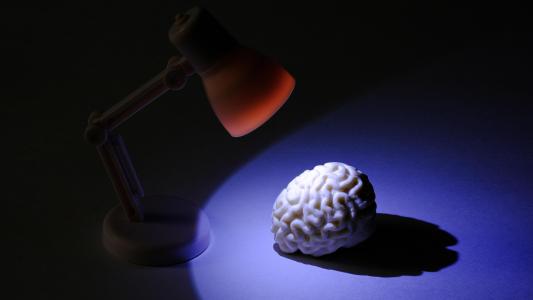Neuroscience
Hope and controversy: FDA approves first new Alzheimer's drug in decades
The FDA has approved the first new Alzheimer’s drug in decades, but the decision brings not only hope, but controversy.
What happens when your brain imagines the future?
Research out of the University of Pennsylvania suggests imagining the future is a two-brain region job.
Will human augmentation move too fast for our brains?
To show how human augmentation can affect the brain, participants in a new study underwent fMRIs after learning to use a prosthetic called the "Third Thumb."
Experimental procedure zaps nerves to lower blood pressure
Renal denervation, a procedure that uses ultrasound pulses to zap renal nerves, showed promise as a treatment for resistant hypertension in a recent trial.
Hidden Brain podcast's Shankar Vedantam: Why the truth is not always helpful
His new book explores the benefits of self-deception.
New brain-computer interface turns mental handwriting into text
A new brain-computer interface translated a paralyzed man’s “mental handwriting” into text on a computer screen.
Four types of Alzheimer’s discovered in international study
A study has identified four distinct types of Alzheimer’s disease, based on how the tau protein spreads in patients’ brains.
These brain-sensing headphones could help you focus
Boston startup Neurable is now accepting preorders for Enten, brain-sensing headphones that use EEG data to help users’ maximize their focus.
App can detect early sign of autism in toddlers
A Duke University smartphone app that can detect an early sign of autism in toddlers could one day make diagnosing autism in young children far easier.
Neuroscientists are making "bug brain soup"
A novel method for counting neurons that involves mashing insects’ brains into a “soup” has led to several new discoveries about bugs.









